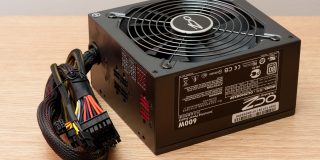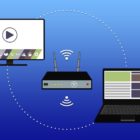What Speed Internet Do You Need to Work From Home?

Working remote has become more common than ever. Many people replaced their offices with the comfort of their homes. While working from home has many benefits, it also comes with certain responsibilities. Having a fast and reliable internet connection is a must if you want to make the most out of remote working and ensure you’re always available, so you may wonder what internet speed you need to work from home.
This article reveals what internet speed is ideal for working from home and the factors you should consider.
Understanding the Terms
Before discussing the internet speed you need to work from home, we need to understand several terms. Namely, the internet speed can’t be represented with only one number. It’s actually comprised of two speeds: download and upload.
Download speed represents how much data you can download from an internet server per second. Upload speed shows how much data you can upload to an internet server per second. Usually, download and upload speeds are measured in megabits per second (Mbps). To put things into perspective, a bit is an eighth of a byte (B, the standard memory unit used for files). Therefore, a speed of 8 Mbps will allow you to download or upload 1 MB per second. While download speed is typically faster than upload speed, it’s possible to get a more symmetrical bandwidth, depending on your needs.

What Is the Ideal Internet Speed for Working From Home?
Although this may come as a surprise, there’s no such thing as an “ideal” internet speed for working from home. This is because many factors affect the internet speed you’ll need to work from home without interruptions or lag.
For example, you won’t need very high speeds if you only use word processing and email apps. However, if you often have Zoom meetings, need to download or upload large files, or use demanding apps and programs, you’ll need higher speeds.
Another factor you should keep in mind is the number of household members who use the internet at the same time as you. If you have children who often stream TV shows or movies or play online games, you’ll need higher upload and download speeds to avoid bottlenecks between devices.
Based on the above, here are some basic questions you should answer when deciding on the appropriate internet speed:
- Do I need to download/upload large files quickly?
- How many household members will use the internet at the same time?
- Do I need to watch videos?
- Do I need to use Zoom, Skype, or another video call platform?
- Do I only need to answer emails?
General Guidelines
As mentioned, an ideal internet speed for working from home doesn’t exist. Not all jobs are the same, and not all people use the same apps and programs for work. Still, there are general guidelines you can follow when trying to opt for the best internet speed for your job.

Up to 25 Mbps
Download speed of up to 25 Mbps is ideal for:
- One or two devices connected to the internet at the same time
- Surfing the web
- General usage
- Email apps
- Social networks
- Moderate video streaming
Between 50 Mbps and 100 Mbps
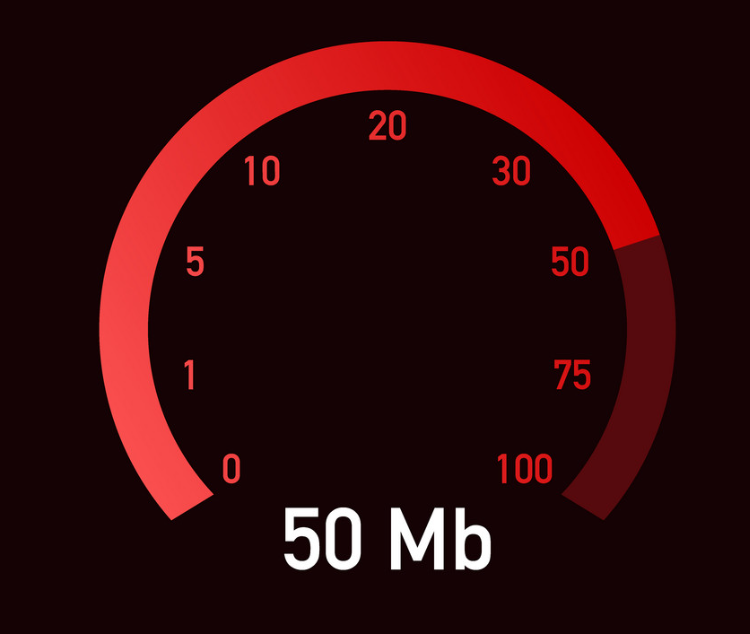
The download speed that ranges between 50 and 100 Mbps is excellent for:
- Three to five devices connected to the internet at the same time
- Surfing the web
- Email apps
- Social networks
- 4K video streaming
- Online multiplayer games
Between 100Mbps and 200 Mbps
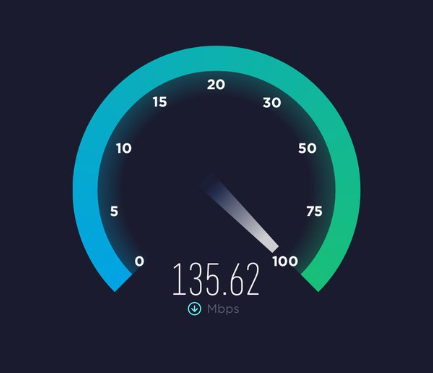
Download speeds ranging from 100 and 200 Mbps are great for:
- More than five devices connected to the internet at the same time
- Large families
- Email apps
- Social networks
- 4K video streaming
- Online multiplayer games
- Sharing large files
- Demanding apps and programs
- Live video streaming
Too Much Internet Speed?
Many internet service providers (ISP) will try to sell you the fastest internet speeds available. While this may sound tempting, there is such thing as too much speed. Namely, if you don’t need to share large files, use demanding apps and programs, or stream live videos, you don’t have to get the fastest internet speed. This especially goes if you live alone. You could end up paying more than you need to, so be careful when choosing your internet speed. We recommend consulting your coworkers about the internet speed they have. They will be able to recommend the best option or at least help you narrow down the choices.
How to Check the Internet Speed
Many people are surprised to learn they aren’t getting their internet plan’s advertised speeds. If you often have problems with your internet connection, you should check whether you’re getting what you’re paying for. The easiest and quickest way to check the internet speed is to perform speed tests. You’ll find plenty of them online, but our recommendation is Speedtest by Ookla. In only a few seconds, you’ll get information about the download and upload speed.
If the results don’t match the advertised speed of your internet plan, it may be time to contact your internet service provider.
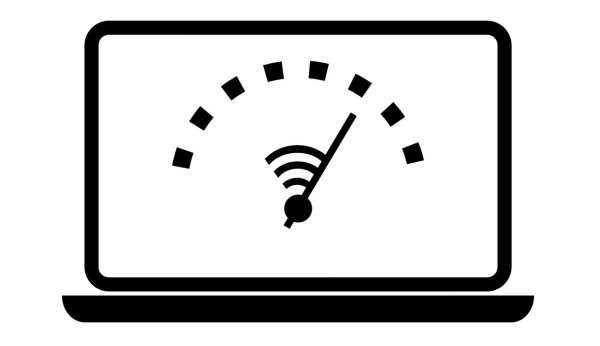
How to Improve the Internet Speed
Contrary to popular belief, you don’t necessarily have to switch your internet plan if you notice the speed isn’t ideal. Here are a few tips that can improve the internet speed:
Change the Router’s Location
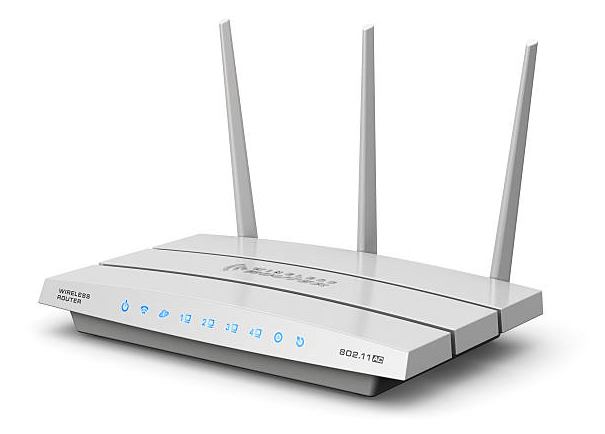
The router’s location can significantly affect the internet speed. If you’re working from home and use Wi-Fi, you want to be as close as possible to the router. Of course, moving the router is often much easier than moving the entire workstation. Try placing the router somewhere where it won’t be close to potential signal-blockers (microwaves, dense walls, radios, etc.) Moreover, ensure the router isn’t on the floor (if possible). Ideally, you should keep it in an elevated, clear location in the middle of the house.
Keep Your Software and Hardware Updated
You should replace your router every few years to ensure you’re using the latest technology. Plus, don’t forget to update the software regularly. This will not only ensure you have a stable internet connection but will also reduce the risk of malware infecting your device.
Pay Attention to Your Activity
If numerous devices use the same internet connection and perform highly-demanding activities, you’ll most likely experience issues. You can resolve the issue by limiting the number of devices you use at the same time or connecting via hardwire.
Lock Your Wi-Fi
Protecting your Wi-Fi network with a password is essential if you want to prevent your neighbors and passers-by from accessing it. You should lock it even if you don’t have neighbors close by to protect yourself from potential hackers.
The fewer people use your Wi-Fi, the faster the connection.
Use a Wired Connection
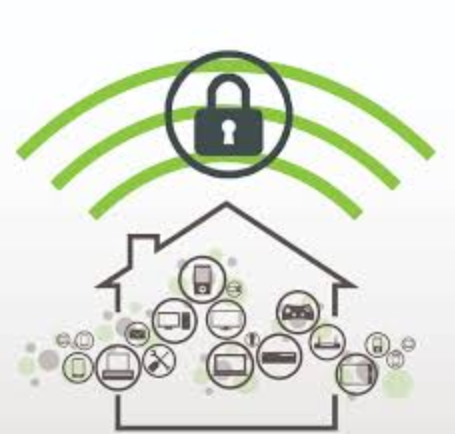
Although a Wi-Fi connection is obviously more convenient, Ethernet (wired connection) has many benefits. A wired connection is much faster and more reliable than Wi-Fi. Plus, you should consider latency, i.e., the amount of time it takes for data to transfer from its source to the destination. If you need fast reaction times, Ethernet is the best solution.
Check for Throttling
Some internet service providers have been known to throttle internet speeds when you exceed your plan’s data limit. Moreover, some have even throttled them for particular websites or activities. If you suspect this, it’s best to run speed tests outside the busy period (8-11 p.m.), install a virtual private network (VPN), and repeat the tests. Getting different results could be a sign of throttling.
Get the Speed You Need
Working from home is convenient and time-saving. But, you need a reliable and fast internet connection if you want the best results. What internet speed you need depends on your job description, the number of household members, and your internet activity. If you use basic apps and programs, you’ll be good to go with an internet speed of up to 25 Mbps. On the other hand, if you need to participate in online meetings, run demanding programs, and use multiple devices simultaneously, you should consider higher speeds.






